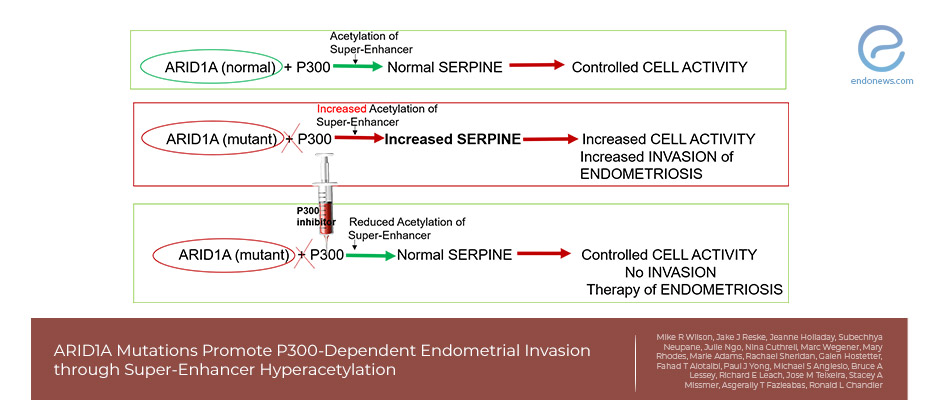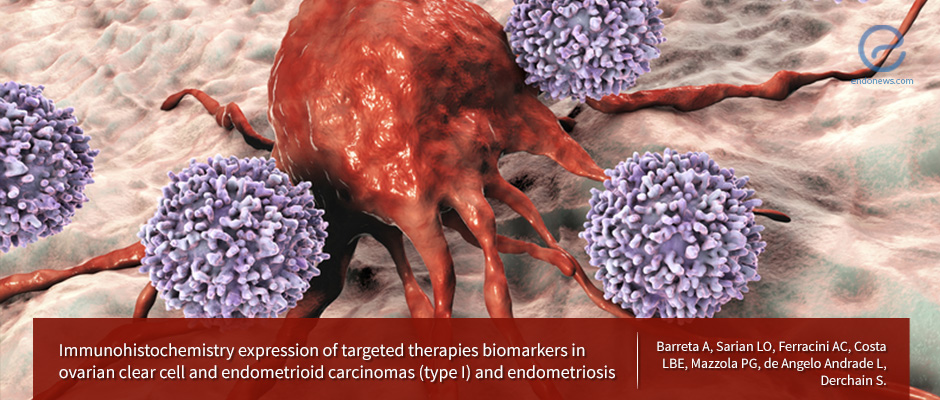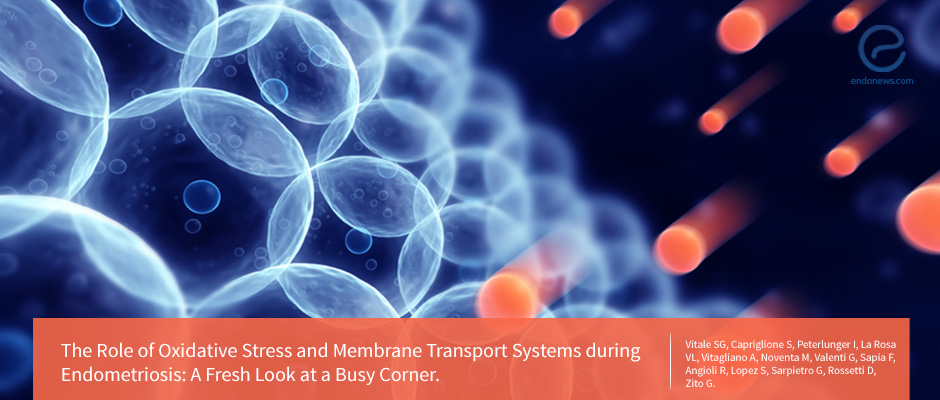A synopsis of deep infiltrating endometriosis of the digestive system
The gastrointestinal tract is one of the most common locations of extrapelvic endometriosis. Its infiltrative counterpart exhibits more aggressive behavior and often needs to be distinguished from malignancies clinically. Yin et al. from Harbin, China reviewed the latest findings regarding…
Key Points Lay SummaryA Possible genetic target for endometriosis treatment
Mutations in the chromosome remodeling complex SWI/SNF subunit ARID1A were first identified in ovarian clear-cell carcinoma and ovarian endometrioid carcinoma, two endometriosis-associated epithelial ovarian cancer subtypes. ARID1A gene mutations are also observed in deep ovarian and deep infiltrating endometriosis, atypical endometrial…
Key Points Lay SummaryTargeted therapy biomarkers in endometriosis associated ovarian carcinomas
Endometriosis in ovaries is a known precursor of endometrioid and clear cell carcinomas. They may be resistant to classical therapies. Researchers search for alternative and targeted therapy options. This study, from the University of Campinas, Campinas, São Paulo, Brazil, will be…
Key Points Lay SummaryOxidative Stress and Endometriosis
Endometriosis is a disease characterized by ectopic endometrial tissue outside the endometrium and is associated with a background of a chronic inflammation. Recent studies have aimed to elucidate the inflammatory mediators involved in endometriotic lesions by studying immune cell interactions,…
Key Points Lay SummaryMutations Associated with Cancer Were Identified in "Endometriosis without Cancer"
Lesions in deep infiltrating endometriosis harbor genetic mutations that are associated with cancer, found a study published in the New England Journal of Medicine. The authors believe that this new discovery may help to distinguish between aggressive and non-aggressive forms of…
Lay Summary
 By Eylül GÜN
By Eylül GÜN

 By Dr. Youngran Park
By Dr. Youngran Park

 By Serdar Balci
By Serdar Balci

 By Murat Osman
By Murat Osman

 By Özge Özkaya
By Özge Özkaya